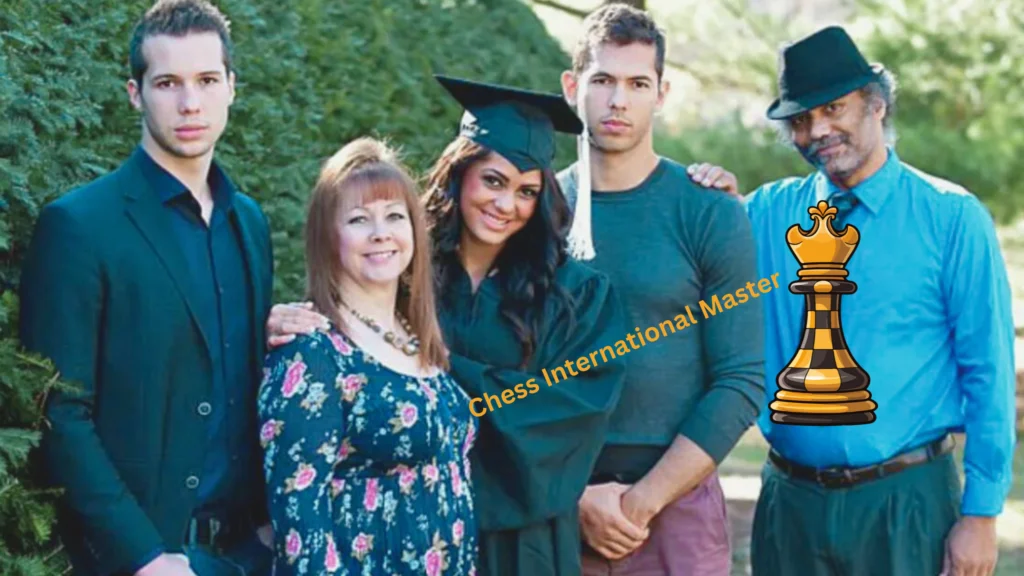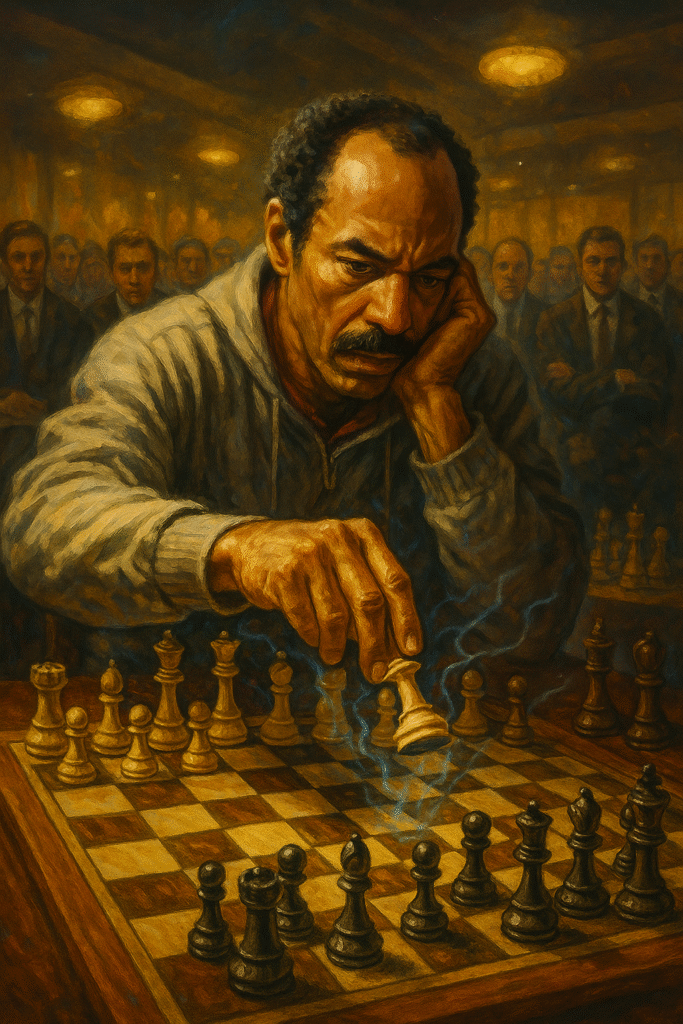Emory Tate: Andrew Tate’s Father
Emory Andrew Tate Jr. wasn’t just the father of internet personalities Andrew and Tristan Tate. He was a chess legend, linguist, and cultural trailblazer. Born on December 27, 1958, and passing away on October 17, 2015, his legacy extends far beyond family fame. Known for his fierce, unorthodox playing style, and revered for his community mentorship, Emory Tate carved a name for himself as one of America’s most creative chess minds.
This article dives into the incredible life, career achievements, and generational legacy of a man who balanced tactical genius with real-world mentorship and inspired countless minds on and off the chessboard.

KEY HIGHLIGHTS
10 Facts to Know About Andrew Tate’s Father Emory Tate
1. Early Life (Tate’s Multifaceted Background)
Born in Chicago and raised in a large, hardworking family, Emory Tate’s strategic mind and linguistic aptitude surfaced early. His upbringing blended intellectual stimulation and practical discipline, laying the groundwork for his dual legacy in language and chess.
2. Education and Linguistic Virtuoso
Tate was a polyglot, speaking Spanish, Russian, and German—skills honed through military training and cultural immersion. His language prowess led to honors programs and made him a valued Air Force translator.
3. Emory Tate Family Life and Legacy
Tate’s family life was as complex as his chess moves. He raised three children, all of whom went on to achieve prominence. His influence is particularly evident in Andrew and Tristan Tate’s confidence and drive—traits reminiscent of their father’s bold personality.

4. Chess Career
Tate’s chess journey was fueled by passion, not routine. He avoided studying theory obsessively, favoring intuition over computer-aided preparation. Yet, he triumphed against grandmasters and earned the title of International Master in 2007.
5. Community Involvement As a Chess Champion
Beyond competition, Tate gave back by teaching chess in Indiana schools. His mentorship wasn’t just about tactics—it was about instilling confidence, discipline, and intellectual curiosity in young minds.
6. Emory’s Legacy of Creative Play
Known for fearless attacks and unexpected sacrifices, Tate’s style broke traditional molds. He earned the nickname “Extraterrestrial” because his play seemed almost otherworldly—brilliant, unpredictable, and deeply inspiring.
7. Father of Social Media Influencers
While Emory Tate never lived to see his sons’ rise to internet stardom, their outspokenness, charisma, and intensity echo their father’s boldness. His influence lives on in their public personas.
8. Emory Tate Nickname
Fellow Air Force veterans dubbed him “Extraterrestrial” due to his unorthodox brilliance on the board—a name now synonymous with his legacy.
9. Death
Tate collapsed during a chess tournament in Milpitas, California, on October 17, 2015. His sudden passing at 56 was met with shock and sorrow across the chess world.
10. Tributes
His death sparked a flood of respect from players and institutions. The Alabama Senate formally honored his life, and Grandmaster Maurice Ashley labeled him a “trailblazer for African-American chess.”
Key Detail About Emory Tate’s Chess Career
Tate’s tournament performance, community recognition, and record against grandmasters confirm his elite skill. Despite lacking the grandmaster title, his creative and tactical strength made him one of the most formidable opponents on the U.S. circuit.

Emory Tate As A Chess Player Rating & Facts
| Attribute | Details |
|---|---|
| FIDE Title | International Master |
| Peak FIDE Rating | 2413 (Oct 2006) |
| Peak USCF Rating | 2508 (Dec 1996) |
| Total Games Played | 398 |
| Wins | 164 (41.21%) |
| Draws | 57 (14.32%) |
| Losses | 177 (44.47%) |
| Career Success Rate | 48.37% |
| GM Victories | ~80 |
| Career Span | 1987–2015 |
Emory Tate Most Played Openings
| Opening as White | Games |
|---|---|
| Sicilian Defense – Taimanov/Bastrikov | 9 |
| Sicilian Defense – Classical Variants | 8 |
| French Defense – Knight/Two Knights | 6 |
| Closed Sicilian – Grand Prix Attack | 5 |
| Caro-Kann – Two Knights Attack | 5 |
Games Played By Emory Tate
Some memorable battles include:
His matches were known for their tactical beauty, regardless of the outcome.
Chess Teaching
In 1993, Tate’s involvement in Goshen’s school system helped plant the seeds of chess awareness in younger generations. His selfless contributions proved he wasn’t just a competitor—he was a mentor and community builder.
Chess Style
Unorthodox, explosive, and wildly inventive—Tate’s style earned respect even from those who beat him. He made chess emotional and intellectual, always keeping spectators guessing and opponents under pressure.
Conclusion
Emory Andrew Tate Jr. remains a towering figure in chess history. Not only did he leave an indelible mark through bold moves and memorable matches, but he also passed on values of fearlessness, intelligence, and authenticity to his children and students. His legacy, though cut short, continues to inspire—and will for generations to come.






